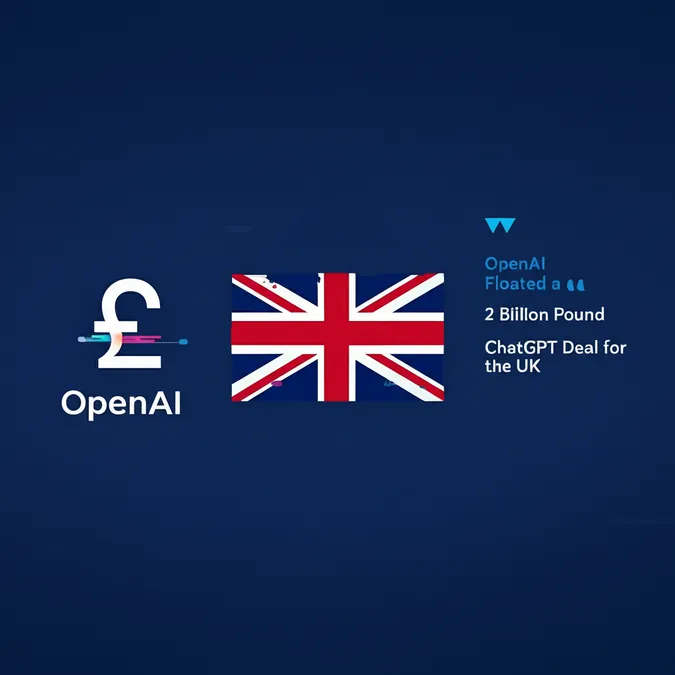Developer Offer
Try ImaginePro API with 50 Free Credits
Build and ship AI-powered visuals with Midjourney, Flux, and more — free credits refresh every month.
Apple Empowers Businesses With Custom AI Controls
Apple is making a significant move in the corporate technology space by introducing powerful new tools designed to give businesses precise control over how OpenAI’s ChatGPT is used within their organization. As reported by sources like TechCrunch, these new configuration options will be released this fall with Apple's latest software updates, allowing companies to manage AI features on iPhones, iPads, and Macs with exceptional detail.
This development addresses a critical need in the enterprise world, where the immense potential of generative AI tools often meets friction from strict privacy requirements and regulatory compliance standards.
Empowering IT Teams with Custom AI Controls
The new features, integrated into the existing Apple Business Manager platform, will provide IT administrators with the ability to enable or disable ChatGPT integration on a device-by-device basis. They can define exactly which employees have access and set specific conditions for its use, such as restricting AI interactions to approved applications or datasets to prevent sensitive corporate information from being processed by external models. A new API for managing these AI configurations will be central to this system, offering what some are calling granular control over AI routing.
Industry insiders suggest that Apple’s strategy extends beyond a single AI provider. The framework is intentionally built to accommodate other AI models in the future, positioning Apple as a neutral and secure gateway for enterprise AI. As noted by Archyde, with millions of businesses already using ChatGPT for Enterprise, Apple's goal is to enable responsible and flexible integration, addressing major concerns like data sovereignty.
Navigating Privacy and Security in AI Adoption
Apple's timing is strategic, as companies are actively seeking ways to adopt AI without compromising security. The new controls are part of broader updates to iOS, iPadOS, and macOS that will see Apple Intelligence features, like those in Siri and the Writing Tools, enhanced with ChatGPT. However, these integrations will come with enterprise-level safeguards to block unauthorized data sharing, a point echoed in reports from Yahoo Finance which highlight how this aligns with Apple's privacy-centric brand.
While Apple's system promises to manage AI queries securely, experts caution that any reliance on external AI introduces potential risks, including model biases or inaccurate outputs. Nonetheless, this move is expected to speed up AI adoption in cautious industries. Looking ahead, discussions around future GPT-5 integration, as mentioned in an Augmented AI News article, emphasize how crucial these management tools will be for handling even more advanced models.
Future Implications for Enterprise AI Integration
This initiative could pressure competitors to improve their own enterprise AI management offerings. For developers, the integration is holistic, extending even to coding assistants in Xcode, as TechCrunch previously reported. By combining its hardware strength with robust software controls, Apple aims to make its devices essential for modern, AI-powered workflows.
Challenges and Opportunities Ahead for Businesses
The upcoming rollout requires businesses to prepare by re-evaluating their internal AI policies. IT departments will need to familiarize themselves with the new Apple Business Manager API and plan for its integration with their existing device management systems. The enhancements promised with future OS updates, detailed in outlets like MacRumors, will only be as effective as the configurations set to mitigate risks.
Ultimately, Apple's enterprise AI strategy reflects a market that is maturing beyond one-size-fits-all solutions. As confirmed by StartupNews.fyi, the focus is squarely on business configuration. This isn't just an update; it's a foundational shift toward a new era of tailored, secure, and controlled intelligence in the workplace.
Compare Plans & Pricing
Find the plan that matches your workload and unlock full access to ImaginePro.
| Plan | Price | Highlights |
|---|---|---|
| Standard | $8 / month |
|
| Premium | $20 / month |
|
Need custom terms? Talk to us to tailor credits, rate limits, or deployment options.
View All Pricing Details

